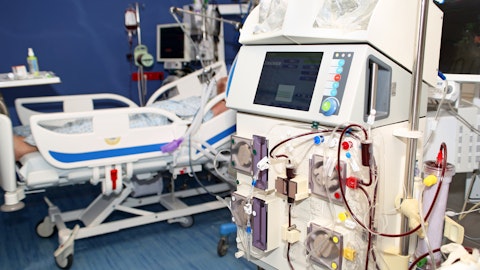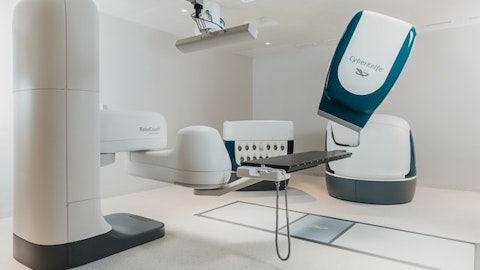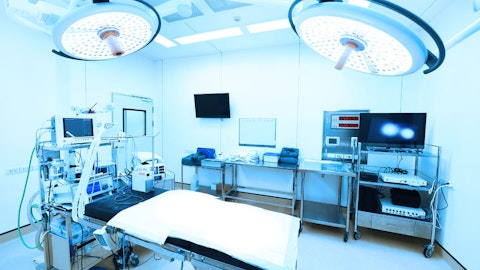Operator: Our next question comes from Neil Chatterji of B. Riley.
Neil Chatterji: First off for me, just on the sales territories. So I believe in the prepared remarks, I think you said it were up to 80%. Just curious if you can just elaborate on that, the benefit you saw from that sales force I guess, infrastructure repositioning you had in the first quarter and then kind of your expectations here for the back half in terms of incremental additions?
Erica Rogers: Right. Sure, Neil. I’ll take that one. Thanks so much for being on the call today. So as we said before, our goal here is to really increase the touch points of our sales professionals with physicians because we know from our own data that when we do that, we drive physicians more effectively up the adoption curve. And so we ended 2021 with 58 territories. We took 2022 to 70. We said that we would grow the territories or expand territories roughly similar to that in 2023. And our goal had been to kind of spread that out over the year. As we said in our Q1 remarks, we responded to some incredible talent that became available to us in Q1 and reacted to that wave of talent and brought more people in sooner and also reorganized as a result of that, right, you’re promoting people internally, you’re creating leadership positions, things of that nature.
And so it feels to us like the commercial team is now fully enforced and executing. That said, we also said we’d add roughly a similar number. So there’s probably a little bit of work to do here in the back half and beyond. We’ll continue to respond to the business. But we feel like we’re in a really great place starting Q3 here with 80 territories.
Neil Chatterji: Great. Maybe just flipping back to the NCD proposal. Just curious on that in terms of some of the language that’s in there for the formal shared decision-making tool and kind of the intended neuro assessment. Just curious what are your expectations for that? And how that might help ensure an optimal patient procedure choice and outcomes?
Erica Rogers: Right. Well, just to reemphasize, our read of this CMS proposed memo here is really about access, providing patients access to care and mainly access to minimally invasive options. And we continue to believe TCAR is in the best possible position given its short learning curves and other real physician benefits to provide better access to patients. And so shared decision-making and some of the other sort of boundaries around this national coverage proposed memo are really shifting that responsibility back to providers and their patients and allowing them to make this decision together versus having CMS make a decision for them. And so we expect that physicians will adhere to the shared decision-making. We may or may not see more color or more granularity as to what that means in the final memo.
Operator: And our next question comes from Felipe Lamar of Citi.
Joanne Wuensch: It’s actually Joanne Wuensch on for Joanne Wuensch. I’m being silly, it’s a long day and night. I got a bunch of questions. So this is the thing. Do you think you can still grow TCAR revenue as fast as you have been growing under the NCD, not in 2023 because this won’t start impacting procedures until sometime probably in the first half of next year but maybe in next year.
Erica Rogers: Yes. So Joanne, good to have you on the call. I’m glad it’s you authentically for you on this call. Yes. So the answer, of course, is we’re not here to give long-range guidance and long-range predictions with any granularity. Of course, we’re not going to do that. But what we can say emphatically is this proposed decision is around providing access to minimally invasive options. TCAR is now the gold standard in minimally invasive options for the treatment of carotid artery disease. So we emphatically believe that this is a tailwind for TCAR. When you think about the entrenched nature of where TCAR is today across the care continuum from referring physicians all the way to treating physicians, from nurses and vascular labs and everything in between that I talked about in my prepared remarks.




